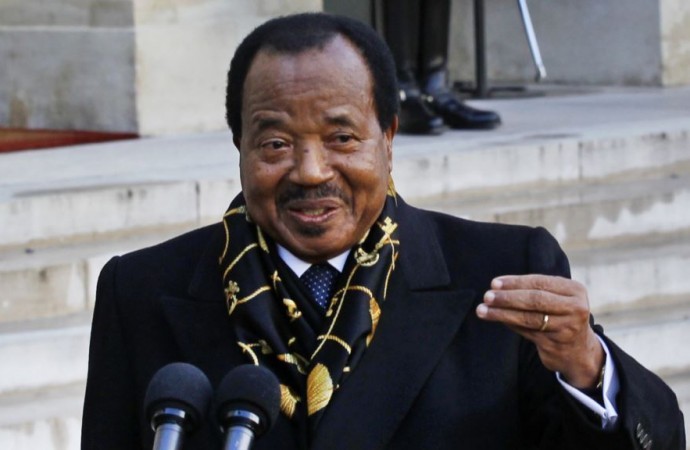Analysis
Fighting intensifies in the Anglophone region of Cameroon
The government’s efforts to appease the restive English-speaking regions of Cameroon have not had much effect. Separatist violence continues in a country plagued by resource scarcity.

In what is called English-speaking Cameroon, violence does not seem to be giving way to peace — quite the opposite. There has been a further escalation in hostilities in the days surrounding the senatorial elections that were held March 25. Since the independent Republic of Ambazonia was proclaimed in the southwestern and northwestern regions in October 2017, the security forces have continued to clash with Anglophone separatists, often with civilian casualties.
The arrest in Nigeria and deportation to Cameroon last month of 47 separatists, including one of their leaders, Sisiku Ayuk Tabe, has been condemned by the United Nations (because the separatists had requested political asylum) and has caused a new wave of violence. Nonetheless, Nigeria has promised to “intensify” its military cooperation with Cameroon in order to flush out the rebels from its border regions.
Meanwhile, the state security forces of Cameroon and the separatists have not stopped fighting even after the cabinet reshuffle which took place on March 2, and with which President Paul Biya (pictured) tried to offer a gesture of appeasement toward the Anglophone region through a greater decentralization of powers — while at the same time keeping the military option at full strength. In the end, the violence and kidnappings by the Ambazonia Defense Force group continued unabated.
Furthermore, during the past month, the number of armed separatist groups has only grown: the Ambazonian Tigers and the Ambazonia Defense Force have been joined by the Banso Resistance Army and the Donga Mantung Liberation Force. At the same time, the armed attacks by Boko Haram have continued in the far north.
The results of the senatorial elections of March 25 (electing 70 Senators, not by universal suffrage but on the basis of votes received from 10,000 municipal councilors, in addition to the 30 Senators appointed directly by the president) will be published within 15 days, but a victory for Biya’s party, the Cameroon People’s Democratic Movement, seems a given. But everyone appears to have learned almost nothing from the experience of recent months, which seems to have instead created a sort of addiction to violence.
In this melting pot that has trapped so many destinies, there is another side of the story, one little talked about: that of a country which is also welcoming refugees. Indeed, Cameroon is home to almost 350,000 refugees who have fled from Nigeria and the Central African Republic.
This process started in 2014, when at least 250,000 people arrived, running from the war in the Central African Republic, who were for the most part hosted by the local population. In many cases, the people knew each other already and were old friends, like Abo from Cameroon and Baba from the CAR, who remembers the terror of the day when he fled from the war with his children and the joy of finding his friend Abo waiting across the border: bienvenue! Starting with almost nothing, the two men soon managed to put together a coop thanks to the support of the FAO and UNHCR, buying 500 chickens and later opening a grocery store in the small village of Nyabodan. This is just one of the positive results of the social inclusion projects implemented by the UNHCR and its partners.
It is a challenge that remains complex because the regions of Cameroon that are hosting refugees are also the poorest in the country, their populations are just as vulnerable as the refugees. And what’s more, as UNHCR official Johannes Zech explains, the funds available for aid are shrinking.
Originally published at https://ilmanifesto.it/escalation-armata-nelle-regioni-anglofone-del-camerun/ on 2018-03-29
